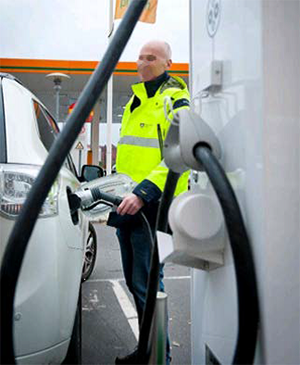United States-European Commission Urban Freight Twinning Initiative: Compendium of Project Summaries
| ||||
| Pilot | Policy | Europe |
The FREVUE project is exposing more than 80 fully electric freight vehicles to the day-to-day rigors of the urban logistics environment. In doing so, the project aims to prove that the current generation of electric vans and trucks can offer a viable alternative to diesel vehicles, particularly when combined with state-of-the-art urban logistics applications, innovative logistics management software, and well-designed local policy.
As part of the FREVUE project, eight of Europe's largest cities, including six capitals, are assessing whether electric vehicles conducting "last-mile" freight movements in urban centers can offer significant and achievable de-carbonization of the European transport system.
The demonstrations have been designed to ensure that FREVUE covers the breadth of urban freight applications that are common across Europe, including goods deliveries, novel logistics systems, vehicle types, climates, and political/regulatory frameworks.

A service station attendant charging an electric vehicle.
Source: FREVUE
Demonstration
March 2013 - September 2017
Amsterdam, Lisbon, London, Madrid, Milan, Oslo, Rotterdam, and Stockholm
Tanja Dalle-Muenchmeyer
FREVUE Coordinator
Cross River Partnership/Westminster City Council
+44 (0)20 7641 1693
TDMuenchmeyer@westminster.gov.uk
Data from the demonstrations will be analyzed, and relevant conclusions for the logistics industry and policymakers will be drawn, including:
Based on this information, partners will produce clear guidelines and recommendations for the key focus groups of this project: freight operators and fleet managers; public authorities at the local and regional level; energy network operators; Information & Communications Technology and service providers and vehicle manufacturers.
The public-private partnership of FREVUE brings together 17 industry partners, 9 public-sector bodies, and 6 research and networking organizations.
|
United States Department of Transportation - Federal Highway Administration |
||